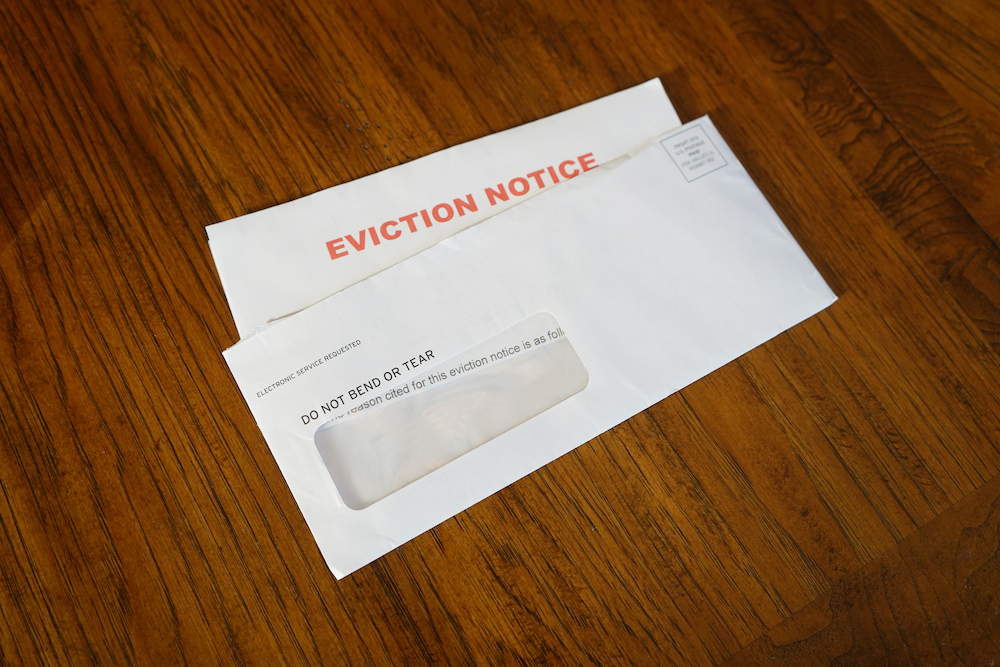
by Kim Pidgeon | Jun 12, 2024 | News
The organisation has calculated the economic and social contributions made by social housing
The UK’s housing crisis has seen building starts rapidly decline while waiting lists for social housing soar. In London alone, over 320,000 households are awaiting social tenancies.
New research has calculated that providing social housing for households on London’s waiting list would inject at least an additional £7.7 billion a year into the UK’s economy.
The G15, which represents London’s largest not-for-profit housing associations, has conducted research focusing on the whole of London which quantifies the economic and social contributions made by social housing using Hyde and Sonnet Impact’s Value of a Social Tenancy (VoST) model. These contributions range from rent savings to the value of increased job and education opportunities, crime reduction and savings to the NHS.
In London, housing associations currently provide 289,000 social rent homes. The findings reveal that each of these homes contributes an average of at least £23,777 in value annually, totalling over £6.86 billion every year.
Providing new social tenancies for the 323,800 households on the capital’s social housing waiting list would inject at least an additional £7.7 billion a year into London and the UK’s economy.
The G15 says the housing crisis has left not-for-profit housing associations unable to invest in the new homes so desperately needed while also investing in existing stock to ensure standards meet the needs of residents and Government.
With the construction of new homes grinding to a halt, the real value of London’s social homes is being missed.
“We’re a nation obsessed by house prices but few people and even fewer politicians appreciate the real value created by London’s social homes’, says G15 Chair Fiona Fletcher-Smith.
“Political parties would do well to remember, as they write their manifestos, that London is built on a vibrant mix of people from all walks of life. Providing homes for those that need them most is an asset, not a cost, creating all kinds of social and economic benefits.”
There are 655,000 social rent homes in London, almost half of which (44%) are provided by housing associations.
The study looks at the social value of providing social housing, including higher employment, crime reduction, education and benefits to the NHS.
Building across the country is in a steep decline, with housing associations starting work on just 6,990 homes in the second half of 2023, compared with 16,270 the previous year. And in London, G15 data shows their members are expected to start work on 1,769 affordable homes in London this year, down from 7,363 last year.
Role of Housing Associations
Housing associations are not-for-profit organisations set up to support people in housing need with homes at below-market rent. All the money they make is reinvested into building more affordable homes and delivering services for their residents.
The services provided are increasingly relied upon by residents, and range from domestic violence refuges, homeless hostels through to community centres and training and apprenticeships programmes.
All areas have seen dramatic cuts from local authorities in recent years, putting even greater pressure on the housing associations.
Three-quarters of the £400,000 cost of a new home is covered by housing associations, with borrowing against current and future rental income making up a large slice.
However, the G15 says decisions by Housing Ministers on how rental income is calculated have made it increasingly difficult for associations to secure the long-term investment they need to build and also undertake refurbishment programmes on existing homes to ensure building safety and achieving net zero requirements by 2050.
It also states, the Government’s 7% rent cap coupled with inflation and interest rates is the final nail in the coffin, forcing housing associations to drastically cut back on building despite the housing crisis.
“Time has run out for the current government to get its own house in order when it comes to social housing,” said Fletcher-Smith.
“Whoever forms the next Government could immediately begin to address the housing crisis by applying consistency to areas like the rent settlement. This simple act would give housing associations the financial certainty we need to keep borrowing and investing in Londoners and the UK.
“Despite the valuable contributions that social homes make, successive Conservative Governments’ indecision means there is little room to grow for housing associations, their residents and London.
“Housing associations provide almost half of London’s existing affordable homes and are the engine of potential new homes. A few tweaks by the next Government, at no cost to them, will help us get on with the job of maintaining existing and building new homes, all while helping revitalise and regenerate communities, address stigma and providing a springboard for people into education and employment.”

by Kim Pidgeon | Oct 13, 2023 | News
Aim of partnership is to re-engage residents before homes are lost
Sovereign Network Group (SNG) is working with housing and homelessness charity Shelter on a new initiative to prevent avoidable evictions due to ‘non-engagement’ in social housing.
Shelter will support customers to re-engage with the housing provider with the aim of reducing avoidable evictions.
The partnership follows the publication of a 2021 Shelter report which cited ‘non-engagement’ as one of the leading cause of evictions from social housing.
The initiative, which when trialled in Devon proved so successful with more than 75% of people re-engaging, is now being rolled out across the South and South West of England.
As a result, SNG will be able to refer customers who live in these areas, and who choose not to engage, to Shelter.
As an independent, Shelter will work with both housing provider and tenant to build a positive relationship and support customers to re-engage. It will also help to resolve any disputes and ensure that both parties understand their rights and responsibilities.
While the specific strategies used by Shelter will vary depending on the local context and the needs of the customer involved, they will actively reach out to customers who have been hard to contact to make them aware of the full range of support available from the housing provider. This includes help finding employment, debt advice and details of grants which may be available.
Advisers will make contact using a variety of channels such as phone calls, emails, letters, and in-some cases home visits. Once referred, customers will have access to further resources including financial counselling and housing advice.
SNG say the goal of the new partnership is to create an environment where customers feel comfortable reengaging, leading to improved living conditions, increased tenant satisfaction, and ultimately, more stable tenancies.
Jon Cox, head of tenancy sustainment at SNG said: “We recognise that sometimes no matter how hard and sensitively we try customers may feel overwhelmed and unable to communicate with us when tenancy issues arise.
“As one of the first initiatives of its kind in the sector, this partnership will support our customers to live well and sustain their tenancy when they otherwise may not be able to.”
Stuart Francis-Dubois, strategic lead at Shelter said: “We’re delighted to announce our partnership with SNG, aimed at providing invaluable support to some of their tenants during their times of need.
“By offering free, independent legal advice, we want to help people navigate their housing challenges and ultimately preventing evictions. Together, we are committed to making a positive difference in the lives of SNG’s tenants.”
SNG is funding the partnership over a two-year period and expects to support approximately 150 people in the first year. Subject to this year one performance, SNG will then look at rolling out the service to other areas.
New figures released from the government reveal £1.7 billion has been spent by local councils on temporary accommodation for homeless households in England in between April 2022 and March 2023 – a 9% increase in spending from the year before and a 62% increase in the last five years.
One third of the total was spent on emergency B&Bs and hostels.

by Kim Pidgeon | May 12, 2023 | News
Planning permission granted for 102 social rent flats
Ealing Council has given the go ahead for a new women’s-only social housing tower block in the borough, close to Acton Town Underground station.
The 15-storey tower will replace the existing 1930s building, Brook House, located on Gunnersbury Lane. The original estate, which also included additional blocks made in the 1970s, is not suitable for refurbishment.
The approved plans will replace the existing buildings and 39 homes on site to create 102 social rent affordable flats for single women, particularly those who face inequality, abuse and disadvantages, especially in the housing market.
The application is supported by Women’s Pioneer Housing (WPH), who are only one of two such specialised housing associations in the country, and L&Q, one of the largest social housing provider in the UK.
The proposed new women’s-only flats, which will be for new tenants as well as existing ones wishing to return, will have dual aspect and a balcony. Works are expected to start on site this summer, with the design also including a range of recreational spaces for residents.
Women’s Pioneer Housing work closely with women’s refuges, homelessness agencies and women’s organisations to provide long-term safe, secure and affordable homes for women.
The organisation says the Brook House project comes amid rising levels of inequality for women in the UK, particularly those who are older, have a disability or are BAME women. Adding there is a huge existing demand for this type of housing; in Ealing alone there are over 600 single women on the social housing waiting list.
The scheme is brought forward with support from L&Q, through their initiative Build London Partnership (BLP), which seeks to find a tailored solution to London’s housing crisis.
Through the BLP, L&Q partners with smaller or specialised housing associations to work in collaboration to develop small, disused, infill and challenging sites across the capital.
WPH says this ‘helps unlock key sites in London and deliver much needed affordable and social housing, often for hard-to-reach communities’.

by Kim Pidgeon | Mar 14, 2023 | News
New rules form part of Bill to protect residents and raise standards in the sector
Social housing managers will now be required to hold an appropriate level housing management qualification to work in the sector.
The professional qualification will be regulated by Ofqual equivalent to a Level 4 or 5 Certificate or Diploma in Housing, or a foundation degree from the Chartered Institute of Housing.
Speaking about the new clause during the third reading of the Social Housing (Regulation) Bill in the House of Commons, Parliamentary Under Secretary of State (Levelling Up) Dehenna Davison said: “Relevant staff who are not already qualified will have to enrol on and complete the appropriate qualification within a specified timescale, which will be set following consultation.”
The new rules, which will affect around 25,000 managers across the sector, will bring social housing more closely into line with other sectors providing front line services, including social work, teaching, and health and care services.
Any landlord who fails to meet the requirements of the new standards could receive an unlimited fine from the regulator.
Gavin Smart, CEO at Chartered Institute of Housing, said: “We welcome the government’s focus on and support for professionalism in housing.
“We believe housing professionals should do all they can to ensure that tenants and residents have access to good quality, affordable homes; that they are treated with dignity and respect; and that their voices and views are heard and taken account of in decisions that affect them, their homes and the communities they live in and that the vast majority of housing professionals and organisations share this belief.
“We look forward to working with government to support organisations and individuals in achieving the qualifications needed under these new requirements.”
The changes will be made through amendments to the Social Housing (Regulation) Bill which will drive up standards in the sector and hold landlords to account over the service they provide to their tenants.
The Bill will also give the Regulator tougher new powers – allowing them to enter properties with only 48 hours’ notice and make emergency repairs with landlords footing the bill.
It follows Awaab’s Law, introduced earlier this year in the wake of the tragic death of two-year-old Awaab Ishak, which will force social landlords to fix damp and mould within strict time limits.
Secretary of State for Levelling Up, Housing and Communities Michael Gove said: “The Grenfell Tower tragedy and, more recently, the death of Awaab Ishak showed the devastating consequences of residents inexcusably being let down by poor performing landlords who consistently failed to listen to them.
“We know that many social housing residents are not receiving the service or respect they deserve.
“The changes we are delivering will make sure social housing managers across the country have the right skills and experience to deliver an excellent service and drive up standards across the board.”

by Simon Fitzsimmons | Feb 12, 2023 | News
Access to Mayor Sadiq Khan’s social housing grant programmes could be denied to London housing associations if homes they manage fall into disrepair.
Speaking to Inside Housing, deputy mayor for housing Tom Copley said of the current state of disrepair: “It is appalling, and there’s no doubt the sector itself collectively has dropped the ball. They’ve not been as focused on management and standards as they should be.”
He added: “We recently wrote to all of our delivery partners to let them know we’re introducing new funding conditions in our programme relating to management standards.
“Any action we take will be proportionate, but we’re very, very clear with our partners that [funding being taken away] is a very, very real risk for them.”
Sadiq Khan’s Affordable Homes Programme 2021-2026 (AHP) has a £4bn budget, which the mayor has committed to maximising the number of new homes in London, over half of which will be at social rent.
Eligibility for the grant funding already includes mandatory design, building safety and sustainability standards which investment partners are required to self-certify compliance with in advance of receiving payments.
Among the conditions are stipulations for the installation of Automatic Fire Suppression Systems, including (but not limited to) sprinklers, and that no combustible materials may be used in the external walls of all homes and buildings, regardless of their height.
London housing associations, stock-holding local authorities and for-profit providers are all among those allocated money from the AHP grant scheme.
In the same interview, Mr Copley was asked about the balance between penalising landlords for maintenance issues with meeting housing targets:
“At the end of the day, we’re not a regulator. But we do, I think, have a responsibility, given that we fund these organisations, to take a firm line with them where they’re not maintaining their existing stock properly. And it’s absolutely right for that threat to be hanging over them if they don’t bring their standards up.”
Meanwhile, the Government has announced Awaab’s Law to force social landlords to fix damp and mould within strict time limits, in a new amendment to the Social Housing Regulation Bill.
The new legislation comes in the wake of the tragic death of two-year-old Awaab Ishak, caused by the damp and mould in his home, which was managed by Rochdale Boroughwide Housing.
The Government continues to block funding to Rochdale Boroughwide Housing to build new homes until it can prove it is a responsible landlord.
A consultation will be launched later this year to set the timeframes within which landlords will have to act to investigate hazards and make repairs.
The new rules will form part of the tenancy agreement, so tenants can hold landlords to account by law if they fail to provide a decent home.
Secretary of State for Levelling Up, Housing and Communities Michael Gove said: “Those landlords who continue to drag their feet over dangerous damp and mould will face the full force of the law.
“Our Social Housing Bill will enshrine tenants’ rights in law and strengthen the Housing Ombudsman and Regulator’s powers so that poor social landlords have nowhere to hide.
“Awaab’s Law will help to ensure that homes across the country are safe, decent and warm.”




